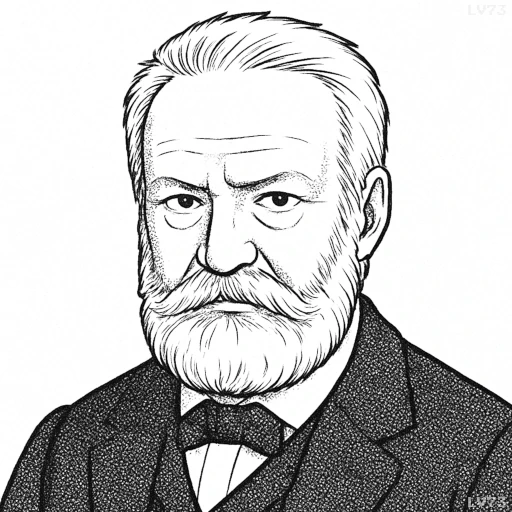“One of the hardest tasks is to extract continually from one’s soul an almost inexhaustible ill will.”

- February 26, 1802 – May 22, 1885
- Born in France
- Author, poet, playwright
table of contents
Quote
“One of the hardest tasks is to extract continually from one’s soul an almost inexhaustible ill will.”
Explanation
In this quote, Victor Hugo speaks to the difficulty of maintaining negative emotions, such as ill will or hatred, over an extended period. He suggests that ill will—a deep-seated, persistent sense of resentment or animosity—can be both emotionally draining and unsustainable. To keep this negative energy alive within oneself requires significant emotional effort, as it takes a constant and conscious effort to fuel such feelings. In contrast to more positive emotions like love or compassion, which can naturally flow and renew, negative emotions like ill will often become exhausting and counterproductive over time.
Hugo’s words point to the toxicity of long-term resentment. While it may feel powerful or justified at first, the continuous cultivation of such negative emotions wears down the individual, preventing them from finding peace or moving forward. The emotional toll of carrying such ill will makes it one of the most challenging and ultimately self-destructive forces to maintain.
In modern terms, this quote reflects how holding onto anger, resentment, or hate can harm us in the long run, draining us emotionally and mentally. It reminds us that negative emotions, while natural in response to hurt, can become a heavy burden if allowed to persist, and the true challenge lies in letting go of them to preserve our own well-being. It encourages us to release ill will and seek healthier ways to cope with conflict, understanding that forgiveness and release ultimately lead to a healthier soul.
Would you like to share your impressions or related stories about this quote in the comments section?


